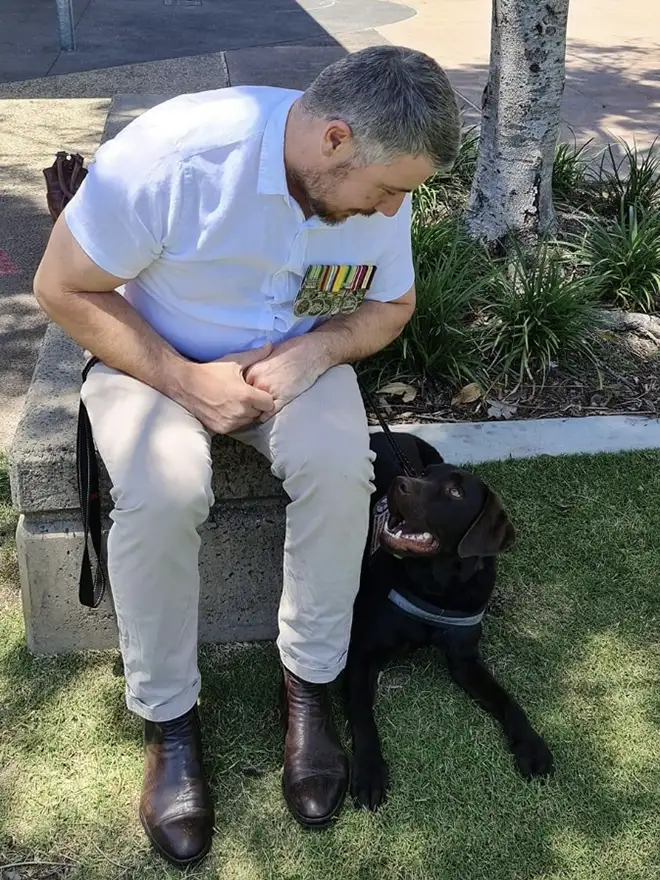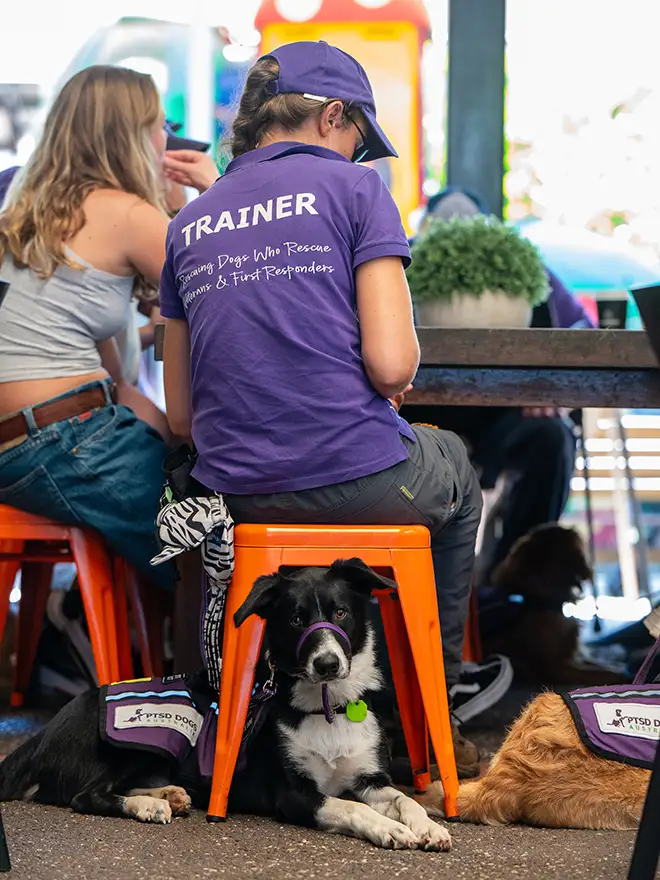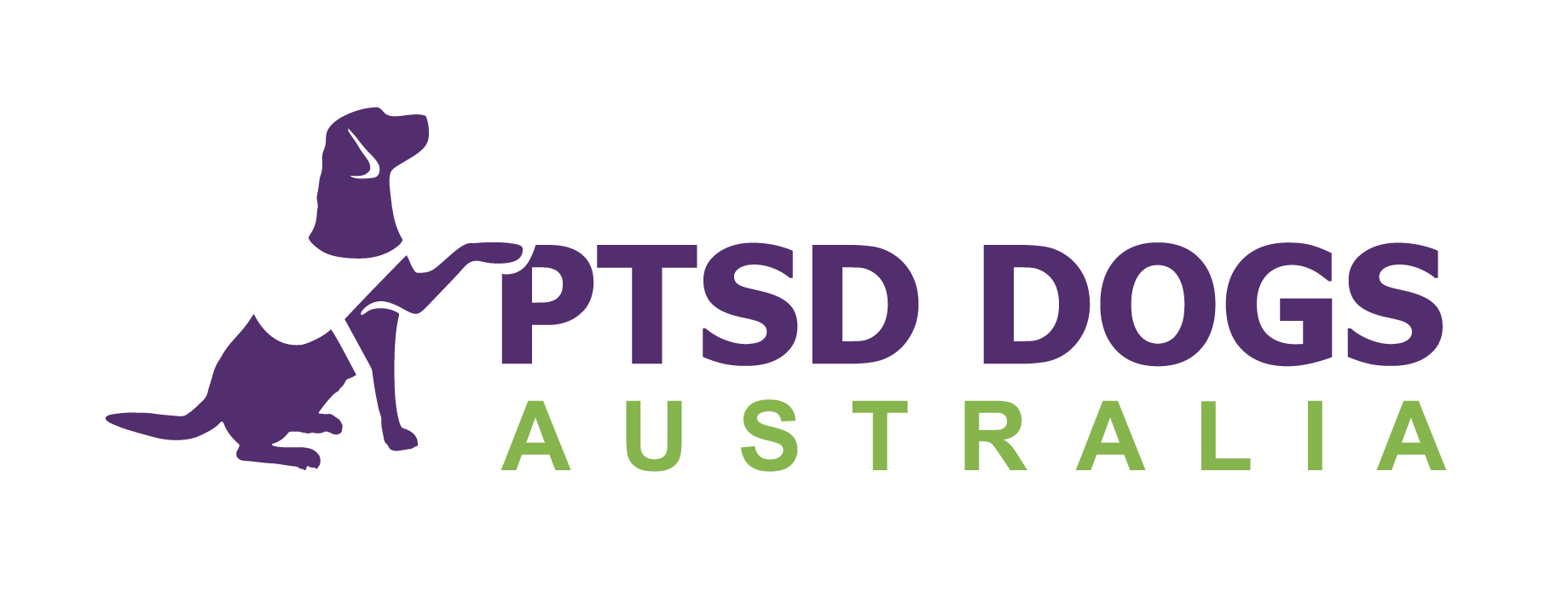Assistance Dogs
Empowering ownersto overcome obstacles


Assistance or service dogs
Assistance or Service dogs are working animals that are specially trained to help people who are living with disabilities do everyday tasks and activities so they become more independent.
Most people are familiar with Guide Dogs used to assist people with sight disorders to navigate the world around them in safety, however there are many other types of Assistance dogs that can be trained such as;
- Hearing
- Dementia
- Multiple Sclerosis
- Autism
- And of course PTSD Assistance
What tasks or jobscan assistance dogsbe trained to do?
Assistance dogs can be taught to carry out more than 50 different tasks. The training for each dog is unique and is tailored to suit the needs of their handler. Some of the tasks we train include;
- Assisting people with balance and walking difficulties
- Turning on light switches
- Opening and closing doors, drawers and fridges
- Retrieving or picking up items such as mobile phones or keys
- Pushing pedestrian crossing buttons
- Picking up clothing and helping take washing out of a washing machine
- Alerting people to seizures or other medical issues such as blood sugar levels
These and many other tasks reduce the handlers reliance on others to help them live a more independent life.
Doggie FAQ's
For many this is an area they know very little about and so we are here to help with our most frequently asked questions or send us a message if you want to know more.
The most common breeds used as assistance dogs are Labradors, Golden Retrievers and mixtures of these such as Labradoodles and Groodles, other breeds can also be trained however size and temperament are important factors that must be taken into account.
Yes, well most places. Handlers of assistance dogs have the right to take their animals into all public places and onto public transport, including buses, trains and airplanes, with the exception of sterile environments and food preparation areas. The Commonwealth Disability Discrimination Act 1992 makes it unlawful to discriminate against a person with a disability accompanied by their assistance dog.
The big thing to remember is that an assistance dog is not a pet, they are classed as a medical device and may be required to monitor their handler for signs of a medical emergency and therefore should not be distracted from their job. Do not call or pat an assistance dog without permission from the handler.
“
"You came into my life full of energy, your my mate, my friend now my guardian. In the short time we’ve know each other you’ve made my life enjoyable. I can eat out with my partner, navigate the shops, and live a normal life that so many others have. You got my six. Tears well as I write about you because I don’t think you’ll ever know just how much you have impacted my life. The joy, the security the constant eye over me.”
Return Veteran & PTSD Dogs Supporter
Donate Now
Ready to help
PTSD Dogs Australia Ltd is a registered charity, fully approved by the Australian Charities & Not for Profit Commission. All donations of $2.00 or more are tax deductible, as approved by the Australian Tax Office. Your generous donations are invested directly to the training and supplying of service dogs.
The form is not published.



